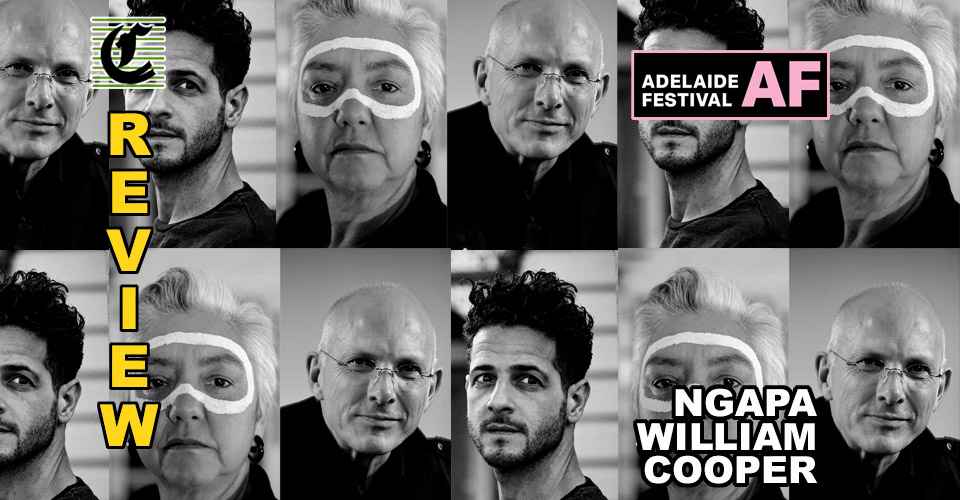[MUSIC ~ WORLD PREMIERE ~ AUS]
Adelaide Town Hall, Tue 7 Mar, 2023.
Our evening begins with an educative Welcome To Country where we learn about the extent of the Kaurna People’s land and get a quick pronunciation lesson.
The first half of our concert tonight belongs to the Australian String Quartet (ASQ). Dale Barltrop, violin; Francesca Hiew, violin; Christopher Cartlidge, viola; and Michael Dahlenberg on cello. The stage is in darkness with just the quartet in the spotlight to create a circle of intimacy and atmosphere that enhances the music beautifully. The night opens with Bryce Dessner’s Aheym (Homeward), a piece dedicated to the composer’s Jewish grandmother, about her fleeing her homeland to find passage in a new land. A fitting start to the night’s proceedings.
Following this piece ASQ again wow us with the haunting and hypnotic Mishima String Quartet No. 3 by renowned minimalist Philip Glass. With its beautifully melodic motif and then the build-up of arpeggios and repetitive structures it is an immersive experience and fully deserving of its enthusiastic applause.
We are now ready and full of expectation to hear Ngapa William Cooper: a song cycle instigated by Lior, and written with his previous composer collaborator Nigel Westlake, Lou Bennett and Sarah Gory.
Consisting of seven songs this composition tells the story of Yorta Yorta activist William Cooper who upon learning about the treatment of Jews in Nazi Germany mounts a petition to the German consulate in Melbourne to protest this.
Accompanied by ASQ and Andrea Lam, piano; Kees Boersma, double bass, and Rebecca Lagos, percussion, the performance begins with Lior on one side of the stage, and Lou Bennett on the other, doing a call to ancestors. We know immediately that we will be witnessing something special tonight.
Westlake’s score underpins and balances the songs. Uncluttered and seemingly simple, even with seven musicians playing, there is subtlety and both dramatic and delicate moments which mirror the vocal melodies beautifully.
Lior and Lou Bennett’s voices are evocative tools. Although primarily singing individually, the moments when they sing in harmony are highlights. Lou Bennett’s presence is moving. Radiating an aura of dignity and pride in her ancestry and culture it is hard not to keep watching her as she sways and embellishes her storytelling with hand movements, and at one point even a gumtree frond is used is used as a percussion instrument. When Bennett sings in Yorta Yorta language the emotional depth this adds to the song cycle is immense.
Lior’s soaring vocals capture the imagination and underscore the strength, vulnerability, and humanity of William Cooper. We hear a recorded reading of Cooper’s actual petition by his grandson during the sixth song The Protest, adding gravitas to another memorable moment.
There is no doubt that this is a story and a composition that matters. It honours a man who should be celebrated. The stirring At The End Of My Days concludes the cycle: “I want to know that I spoke up when I saw wrong’ sung in Yorta Yorta and English seems to hit at the core of many in tonight’s audience. There are standing ovations, and people leave saying things like ‘such a privilege’ and ‘profoundly moving’. Hopefully there will be many more performances ahead for this impressive song cycle.
5 stars
Cathy Tune
#Clothesline_Mag
#AdelaideFestival

The Clothesline Rating...
Catherine Tune
Profoundly moving performance of an evocative song cycle.




